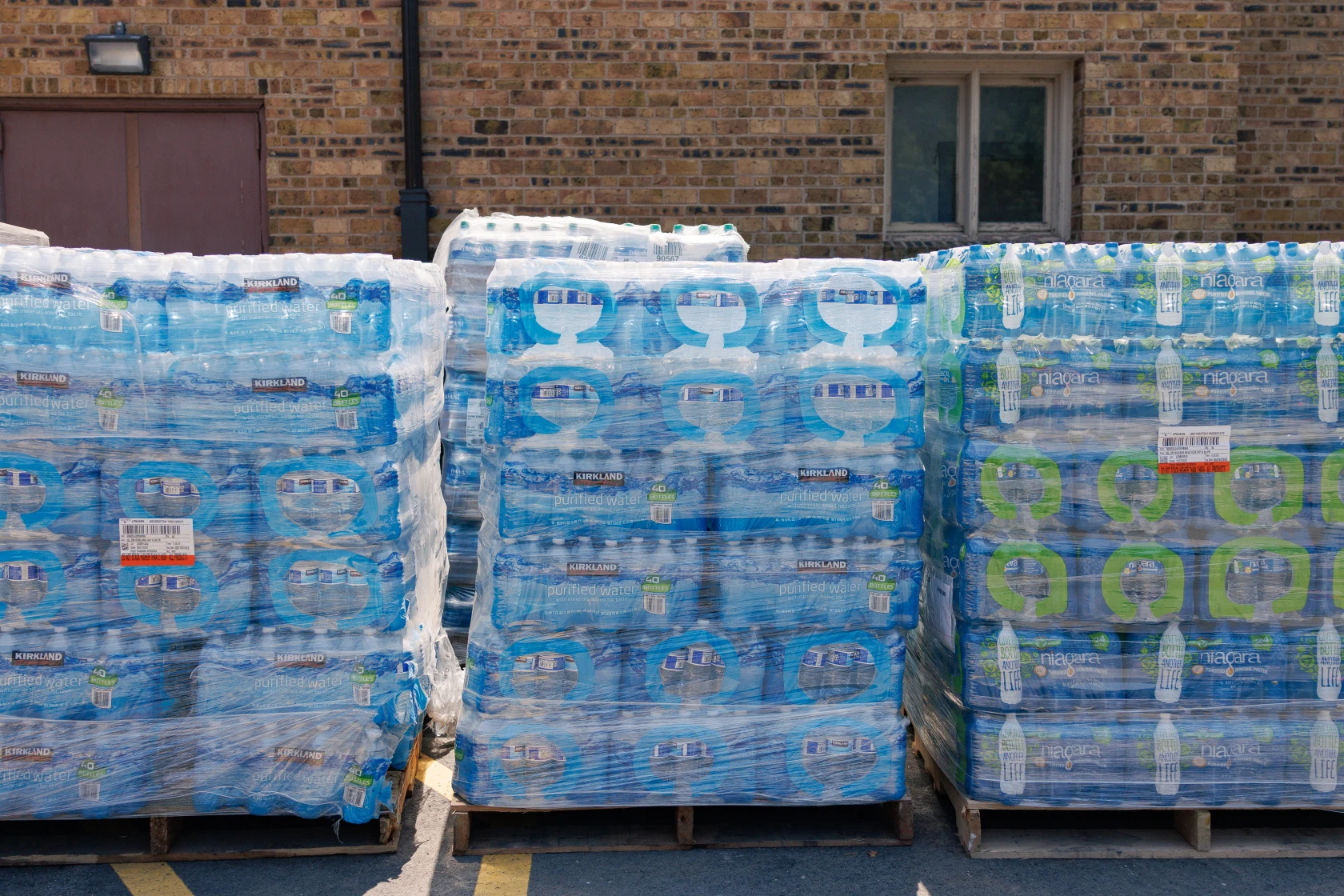Most of Chicago’s lead water service lines are in Black and Latino neighborhoods, where people rely heavily on bottled water and would be hardest hit by a higher bottled water tax.
Chicago Sun-Times – There is no safe level of lead in water used for drinking and cooking.
For many Chicago families, particularly those in Black and Latino neighborhoods, buying bottled water is a daily necessity, not a luxury. Chicago should not increase taxes on bottled water to solve the budget problem.
The city already imposes a 5-cent tax on each bottle of water. Now some city leaders are considering raising that tax by 200%, to 15 cents. For a standard 24-bottle case priced at $3.49, the proposed new tax would be $3.60, for a total cost of $7.09. This is an effective tax rate of 103% — and it does not include the additional sales tax of 2.25%.
No other city in the nation has a bottled water tax. It is a tax that particularly punishes Black and Latino residents, who disproportionately suffer from the city’s continuing use of water service lines that are made of lead. If Chicago effectively charged some families once for drinking water while charging other families twice, there would be a great outcry. Yet this is what has been going on for years.
It has long been known that for children, lead exposure leads to a wide array of problems, including lower IQs, academic disabilities, behavioral disorders, and decreased cognition. For adults, lead exposure leads to a comparable array of serious problems, including those associated with the kidneys, the heart, blood pressure, and depression. As far back as the 1970s, lead-based products, such as paint, were banned. The city required the use of lead water service lines until the federal ban in 1986. As a result — and as reconfirmed by the Environmental Protection Agency on Oct. 8, 2024 — Chicago still utilizes 400,000 lead service lines to deliver water to Chicago residents, the most of any city in the nation.
An alarming March 2024 study published by the Johns Hopkins School of Public Health concluded that “an estimated 68% of children younger than 6 years in Chicago are exposed to lead-contaminated drinking water.” That is a study that came out this year, even with the city’s efforts to deliver free water filters to residents.
Tests show that the biggest percentages of lead in water lines tend to be in minority neighborhoods. Nine of the top 10 ZIP codes with the highest percentages of lead lines have majority Black and Latino populations.
In May 2023, Sebastián Villa-Rodriguez published a study that shows the hot spots where lead lines still connect to homes. The bottom line is that city water often is not safe for drinking and cooking, particularly in Black and Latino neighborhoods.
With these statistics, it comes as no surprise that many Chicago parents, grandparents, and caretakers turn to other sources for clean wate, often buying it from neighborhood stores. The Johns Hopkins study corroborated findings that minority families are more likely to resort to bottled water. Similarly, a 2022 study by Elevate, an organization that researches water affordability, shows that minority communities use less city water.
By virtue of the location of its lead service lines, the city effectively has a two-tiered water supply system, where some families have to pay one tax, and other families have to pay two. For some neighborhoods, the city delivers lead-free drinking water, so families have to pay only a single water tax. For other neighborhoods, even though the city delivers lead-contaminated water, families still have to pay the city. Then, when they buy clean water from another source, they have to pay a second tax.
The City Council is responsible for more than just raising revenue. It is responsible for preserving public health. In rejecting policies that exacerbate injustices against minority and other communities, leaders should address the fundamental inequities in water quality that plague Chicago.
Rather than raise the inequitable water bottle tax, the City Council should eliminate it altogether.
Ald. Gilbert Villegas represents the 36th Ward on the Northwest Side.
The views and opinions expressed by contributors are their own and do not necessarily reflect those of the Chicago Sun-Times or any of its affiliates.


